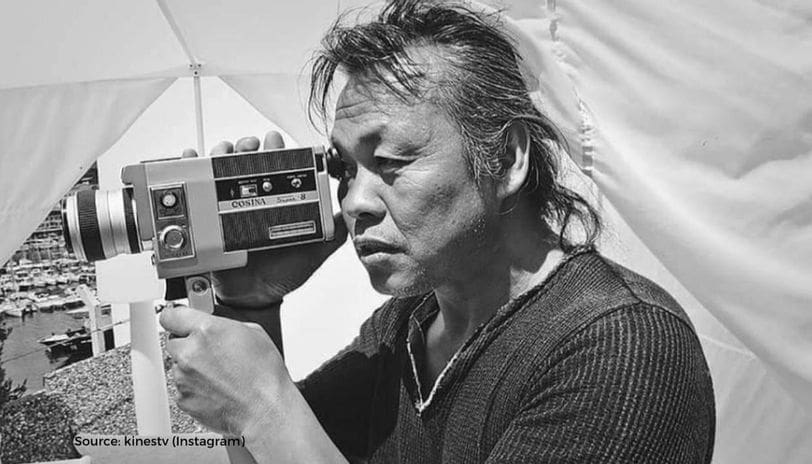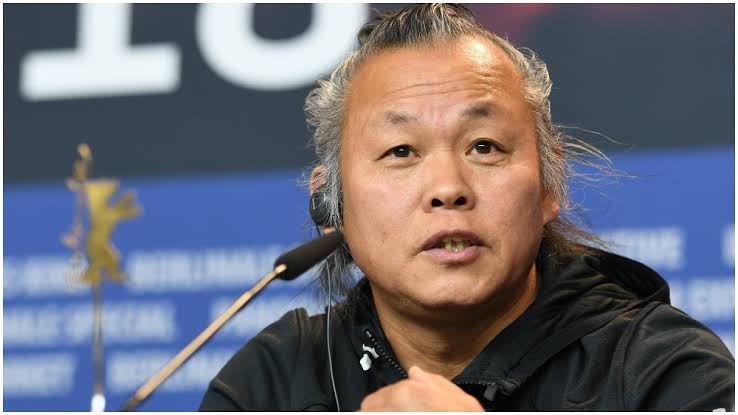
Shemeel Morya
My filims are out of mediocrity, Kim ki Duk the south korean director known for his eccentric cinematic oeuvre, once said. May be that ‘s why the characters in his filims don’t talk much. Most of the movies have very little dialogues, rather the scenes captured were excruciating. The fictional sculpture seems to be the mild surface of the sea, and the violence unexpectedly exploding are evident of how Kim’s treatment of motif is idiosyncratic. It scares the audience sometimes with blood drips, and the scenes of cut penis, bitten vagina.
Kim didn’t have to study cinema academically or work on anyone’s cinema set, thus, as probably someone has, when it comes to the concept of cinema needed not to just carry the burden of it all. He studied at an agricultural science training school at the age of seventeen due to life circumstances. The hunger itself was the reason. He served the military for five years, became a priest for some time and even did factory works. He came to Paris with his hard- earned money and wandered around as a street painter for a long time, where he watched the filim for the first time. There is a lot of drama behind Kim’s journey from “Crocodile” (1996) to “Dissolve”( 2019). Kim had no worries about the technical process of the movies. He firmly believed that cinema requires the creativity beyond technology. However, the most acclaimed filim maker in the filim festivals of the world including of Cannes, Berlin, Venice, Locarne, Karlovy Vary and San Sebastian has been hunted in his own country.
A break in career
Those who searched for the director having fans all over the world couldn’t find him from 2008 to 2011. Kim left the filim scenario altogether for three years. It was the heroine’s accident during the filming of “Dream” that prompted him to do so. He pitched a tent and lived in solitude on a hillside. The camera which was placed in a tent with solely essential amenities captured Kim’s loneliness, madness, days of screaming, the silence of nights and the periodical shifts witnessing it all.
Looking at the stillness of the camera Kim Ki Duk cried and said “can’t filim anymore -everyone started hating me.” Korean folk song was sung then in an unhappy voice, occassionally screamed. Three years of drinking, reading and cooking. Kim came back after three years of self immolation with the docufiction “Arirang” in which his state of loneliness is thematic. Once again Kim was able to address the world through movies with innocence but with more maturity. The filims like “Amen” and “Pieta told us that there is beauty in everything on earth and that anarchy is inevitable for the artist. When asked about such views that may seem absurd Kim said again, there is beauty in everything on earth that we need to find.


Kerala’s beloved
If there was International Flim Festival of Kerala (IFFK) this time the curtain would have been araised on Friday. Coincidentally Kim passed away the same day. So popular were his filims everyear at IFFK. And made the strata of movie connoisseurs for the screenings in Thriruvanathapuram. Kim ‘s first film was shown on IFFK in 2003. In 2005, 6 filims were screened later his movies were regularly displayed at the festival. In 2013 he came as chief guest on IFFK and was given more reception by movie aficionados than the superstars do get. Kim retured from Kerala with a song from “Arirang” for his favourite audience. His” Net” was also on display in 2019.
The idea of family
His vision of the family is precisely illustrated in the movies like “Moebius.” The heroine of “Moebius” turned out to be drunkard due to marital breakdown. She is anxious whether she can satisfy he husband with her own body as before.
Such female characters can be found in the films like “Time” and “Breath”. Kim mocks all the definitions of human relationship after bringing the audience into the world of unsettling experience. The ironical fact seen in the filims of Kim is that the violence and non violence found showing no particular distinction. Kim says there are those who see only violence and brutality in my filims what I have to say them is that I try to mark the reflection within each of them. This violence is present in all human beings. Though the life is beautiful.
Shemeel Morya is a student of BA English Literature at Calicut University, Kerala.



